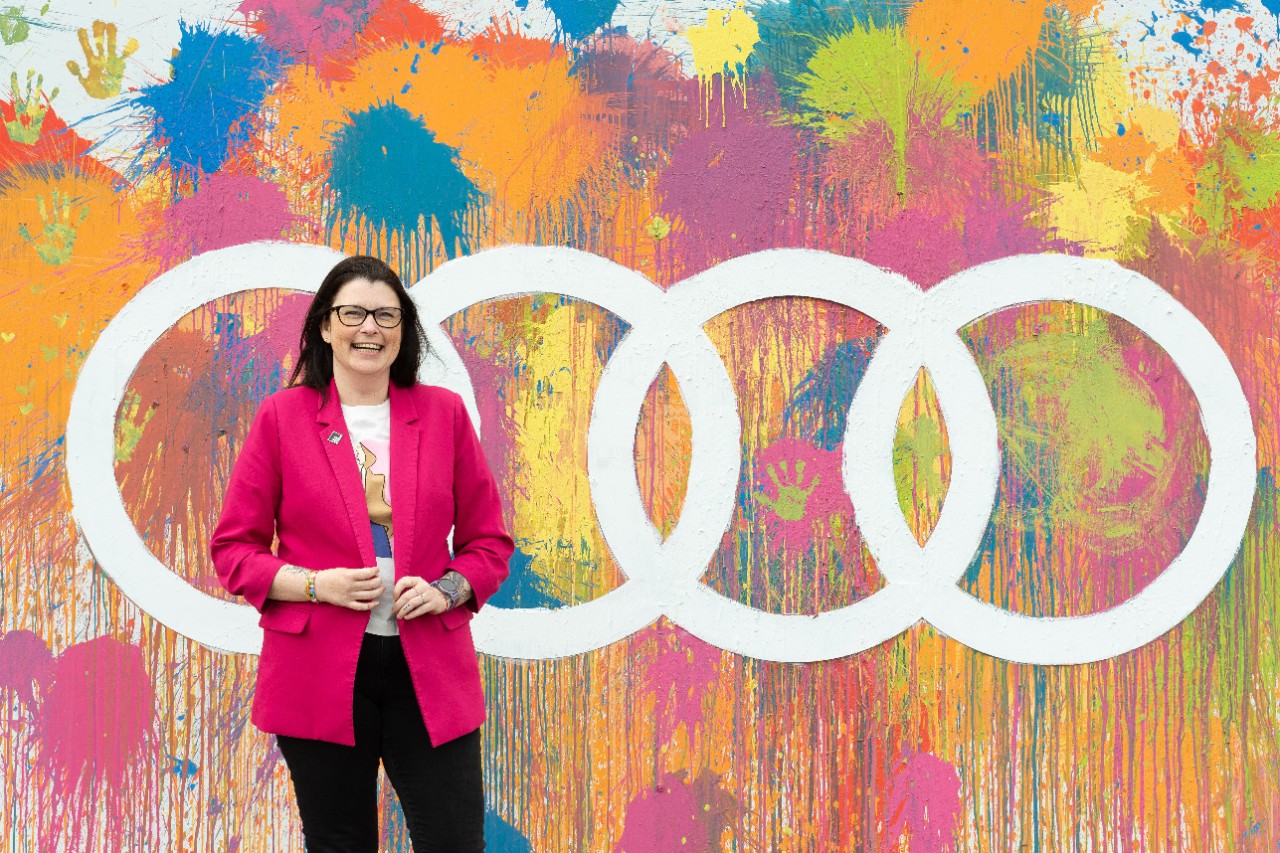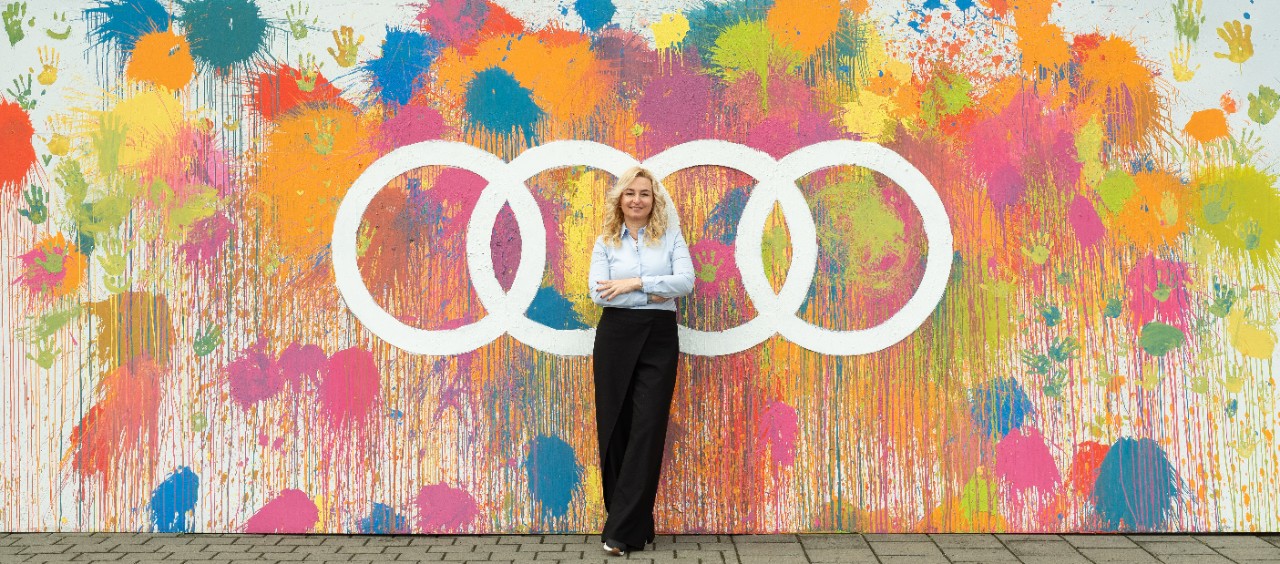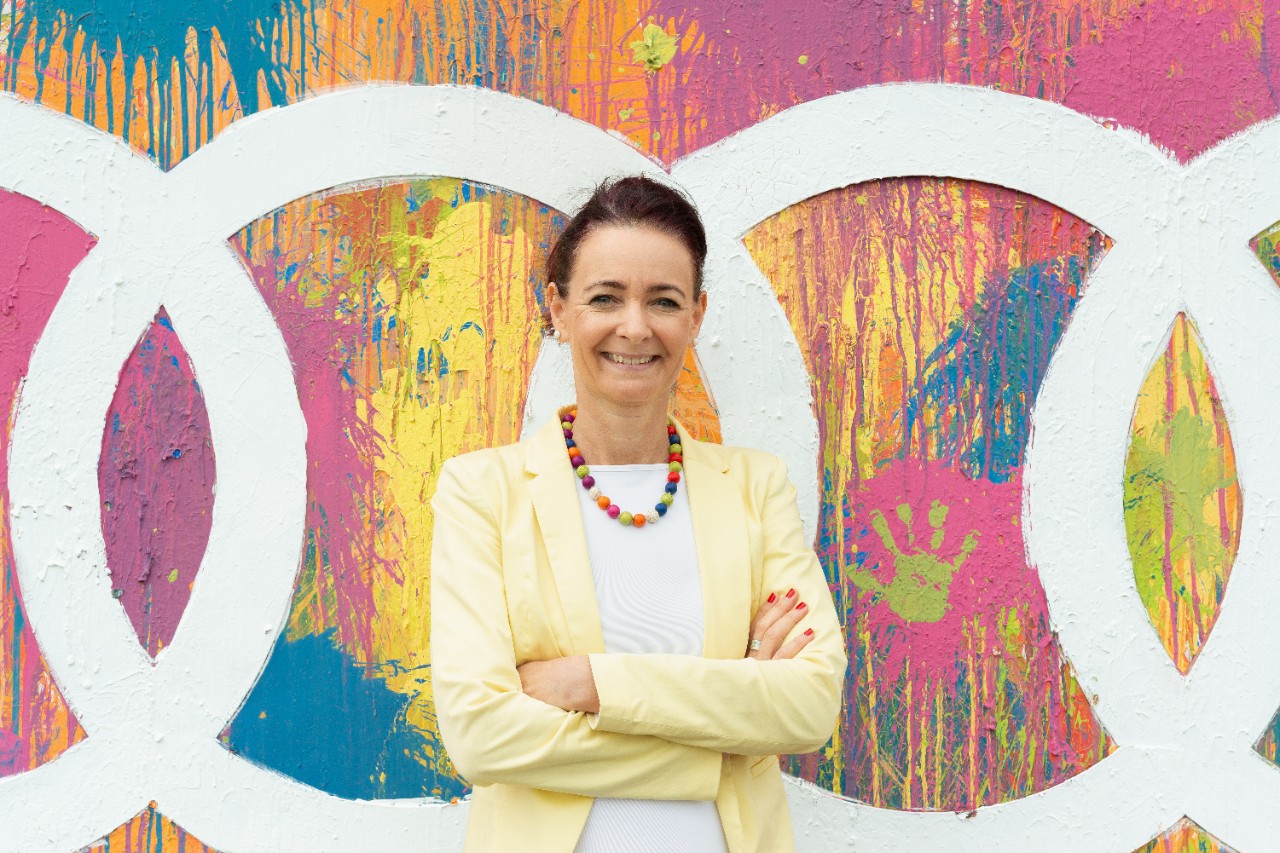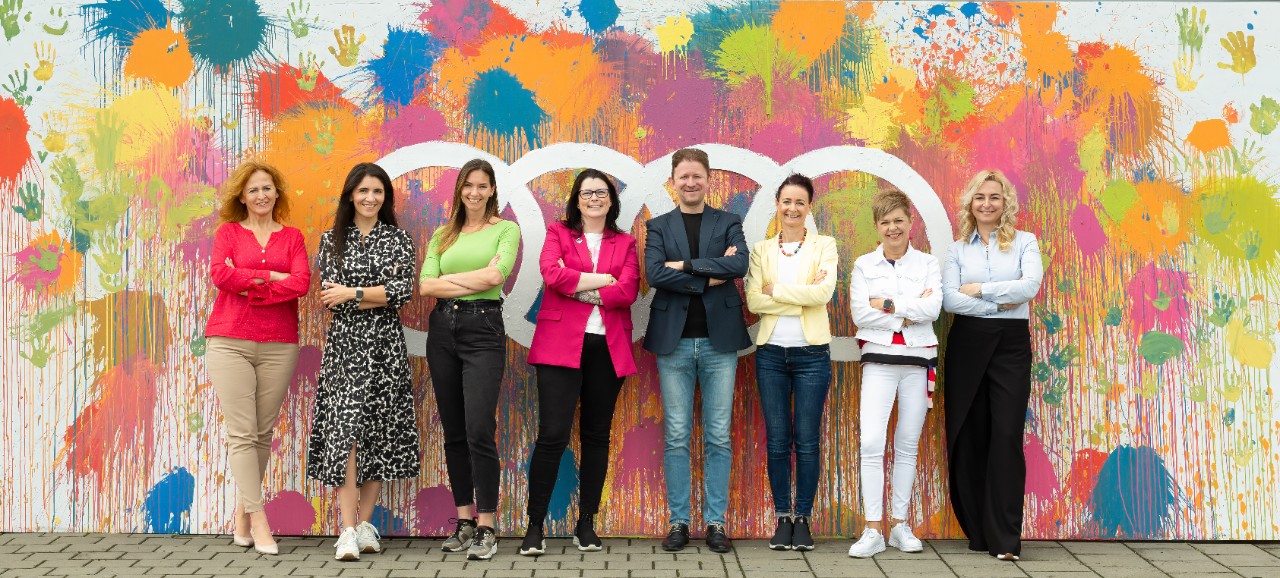6 time zones, 8 languages, nearly 60 online programs, 16 of which were delivered by our colleagues from Győr, discussing a wide variety of issues shaping the world of today. The program series was also streamed to Mexico, Brazil, China and several countries in Europe.
Katalin Bális, our Diversity & Inclusion expert, summarized Audi Hungaria’s activities on diversity and inclusion, and she spoke about the event with tireless and genuine enthusiasm.

“What’s good about this week? That we can experience together what diversity is all about. Me, you, the third person on the phone outside the building, the fourth person on the production line and the fifth person in the office. What it means to be empathetic, to accept diversity and not to judge based on stereotypes. It is a learning process that can only be undertaken voluntarily, but we are trying to spark interest, raise awareness and create demand.”
How does openness evolve in a large company of 12,000 employees, where generational, cultural, linguistic differences and certainly a wide range of viewpoints are present in everyday life?
“Our community is a true reflection of our society, it is truly diverse. The openness and inclusiveness of people vary, but it is safe to say we are primarily working with people whose mindsets we do not wish to change. It must also be accepted if someone is not so open-minded or inclusive. We want to enhance the voices of the less outstanding groups, to see that they are here; they are also humans and just as valuable as everyone else.”
The presentations in Győr are rather colorful, how did you choose the speakers and the topics?
“This year, all our presenters volunteered, thus to my great delight, I only had to find the right connection with the main line of approach. Our colleagues reflect on a wide range of topical issues, with a special focus on their favorite topics, be it the proportion of women in management, intergenerational differences or bullying at the workplace.”

So did our colleague Dr. Eszter Kovács, who in her presentation “Toxic? Compulsion to comfort? Internet addict? Or just a different generation?” discussed the characteristics of certain generations and the differences between them. Eszter is an organizational developer and trainer who has been working on the topic New Work at Audi Hungaria for the last two years. Having found answers to questions regarding her own life in generational differences, which she started to explore in more depth after an interview with generational researcher Krisztián Steigervald.
“The relevance of the topic is brought about by life itself, as more and more generations are working together in our company, which turned 30 years old last year. While previously generational cycles followed each other every 30 years, with the rapid advances in technology this period is getting shorter and shorter, down to 10 years today. This means that colleagues with different expectations, motivations, behavioral norms, or even values may work side by side in our company, which might cause tension or conflicts between them.”
Dr. Eszter Kovács brought the underlying phenomenon closer to her keen audience, who kept giving their feedback during the interactive presentation. This shows that generation gap is present at Audi Hungaria, and the speaker stressed the importance of the role of bridge between the generations.
“We understand what we experience. It is harder to understand and accept what the older or younger generation is experiencing. There are many of us who, drawing on our intergenerational family life, know the right answers to many of the whys, so I encourage everyone to take on this mission and help others be more accepting.”

Our colleague Ingrid Kovács, stepping very much out of her comfort zone, gave a presentation in English and Hungarian entitled “Perceptual biases at work – Why is inclusion sometimes so difficult?” She spends her weekdays as an AC moderator, managing selection processes, carrying out diagnostic measurements, working on organizational and personnel development, and of course taking a keen interest in the filters through which we humans see reality. According to our current knowledge, there are about 180 filters, which we use to judge the other person even before we actually meet.
“I have chosen a topic for this year’s Diversity & Inclusion Week that is universal, human, and affects us all, not only at work, but also at home, in our roles within our families.”
How are perceptual biases related to inclusion?
“The need to belong somewhere has been a universal characteristic of humanity since ancient times. These mostly instinctive mechanisms also appear in our workplace situations, as the fight for survival, although on a different plane than in the age of primitive man, is present. Is the future of the car industry secure? Will I work here until I retire? Things that were once taken for granted seem to be called into question today, so we focus too much inwards, and it is increasingly difficult to look outwards. That’s where self-awareness can help us to work on ourselves, on how we can react in a better and more accepting way in everyday situations, whether at work or in our personal lives.”
Our company is diverse due to its international character. This diversity should be experienced as a value, as it is the many different points of view and opinions that make us valuable, stimulate our creativity and open up new perspectives. We are also learning inclusion, we have plenty of room for improvement, but we are on the right track, and we have taken another step forward with this thought-provoking, conversation-stimulating week.
And you? Are you different in any way? Yes!
What other topics have Audi Hungaria colleagues covered? Thank you for their work, it’s been a fantastic week and we have a journey of collective development ahead of us!
· Dr. Réka Busa, Katalin Bális: Legal situation of the LGBTQ+ community in Hungary
· Dr. Eszter Kovács: Toxic? Compulsion to conform? Internet addict? Or just a different generation?
· Henriett Czipf, Katalin Bális: Is ESG just simple data collection?
· Katalin Bális, Ingrid Kovács: Inclusion survey around the world – Inclusion survey panel discussion with the international Diversity team
· Laura Kurdi, Dr. Réka Busa, Katalin Bális: How not to bully each other – effects of mobbing
· Ingrid Kovács: Perceptual biases at work – Why is inclusion so difficult?
· Klaudia Lachout: How do we help reintegration after a long-term absence or medical restriction?
· Csilla Kóródi: How our modern world threatens empathy and why is it important to protect it?
· András Tóth: My adventures as a male engineer in the world of HR
· Dr. Imre Lepsényi, Dr. Daniella Koós (Széchenyi University DESIGN CAMPUS): Design for Diverstiy & Inclusion – How can designers help create a more inclusive world?

